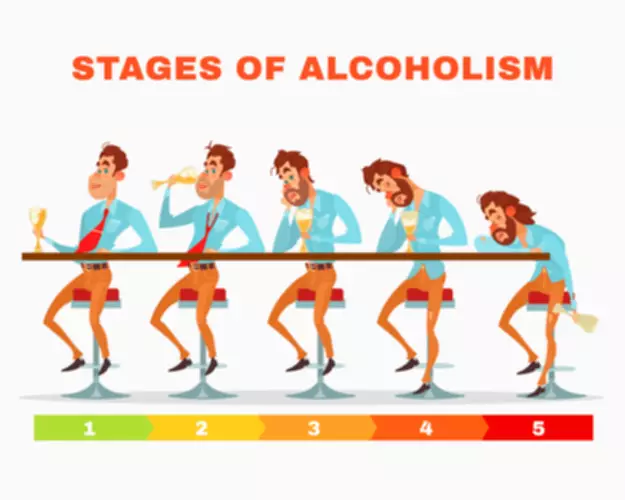
Treatment can include counseling, medications, residential programs, and support groups. Many people with AUD do recover, but setbacks are common among people in treatment. Seeking professional help early can prevent a return to drinking. Behavioral therapies can help people develop skills to avoid and overcome triggers, such as stress, that might lead to drinking.
- Keeping a “drinking diary” may be recommended so you can record how many units of alcohol you drink a week.
- Along with your treatment for AUD, you may need to seek medical care for other complications you experience.
- But a year into the pandemic, in 2021, the proportion had dropped to just 1 in 5.
- If you feel unwell while taking naltrexone, stop taking it immediately and seek advice from your GP or care team.
- Your health care provider can help you evaluate the pros and cons of each treatment setting.
What Types of Aftercare Programs and Support is Available?
If you don’t control codependency, it can lead into more serious complications such as obsessive behavior, blame, and mental health issues. There are many rehabilitation services you can opt for to help treat alcoholism. Rehabs provide support and the resources needed for de-addiction. They help people stay focused on their goals and avoid temptation. The first step to overcoming addiction is stopping alcohol consumption completely.
How to approach someone with a drinking problem

Someone with alcoholism has both a physical and psychological dependence on alcohol. They may have problems controlling their drinking habits or choose to keep drinking even though it causes problems. These problems may interfere with their professional and social relationships or even their own health. Lastly, whether enrolled in a formal treatment program or you’re still contemplating sobriety, you may benefit from mutual support groups as a part of your lifelong recovery process.

Heading Off Alcohol Use Disorder
During the recovery stage, it’s not uncommon to feel temporarily worse. For some people, AUD has hurt their relationships, careers, health, finances, self-esteem, and other aspects of their lives. That said, there are four general stages of recovery, as compiled by addiction expert Steven M. Melemis, MD. These stages can help prevent relapse and support people to live healthier, fuller lives.
- Staging an intervention involves a doctor or an intervention specialist approaching the person along with family and friends.
- Addiction to alcohol means a person feels compelled to use alcohol.
- In wait-list studies, methadone treatment was effective at reducing opioid use on its own, and patients stayed in treatment.
- Because he is a member of a support group that stresses the importance of anonymity at the public level, he does not use his photograph or his real name on this website.
- Addressing the nation’s mental health crisis and drug overdose epidemic is a top priority of the Biden-Harris Administration and are core pillars of the Administration’s Unity Agenda.

If you think you may have alcohol use disorder, you’re not alone. Realizing you may have an issue is the first step toward getting better, so don’t hesitate to talk to a healthcare provider. They’ll recommend treatments and resources to help you recover from alcohol use disorder.
- If you aren’t eating enough protein throughout the day – and actually with each meal – then your muscles are going to start breaking down.
- You doctor also can refer you to a treatment center or experts who can help.
- As with other addictions, it plays a role in behavioral addictions like compulsive shopping or binge eating.
- Many involve a combination of group psychotherapy (talk therapy) and medications.
- This can mean cutting off financial assistance or making it difficult for them to fulfill the addiction.
- These complications are reasons why it’s important to treat alcohol addiction early.
Use these free education and outreach materials in your community and on social media to spread the word about mental health and related topics. The challenge of this stage is to essentially develop and maintain healthy life skills that will serve you for a lifetime. An exciting part of this period is that it can lead https://ecosoberhouse.com/ you to a happier life full of welcomed change and constant improvement. This stage typically starts 3–5 years after you’ve stopped drinking. People often need to address past trauma or familial issues during this time. So far, there’s no consensus on the medical definition of recovery in alcohol treatment literature.
The severity of the disease, how often someone drinks, and the alcohol they consume varies from person to person. Some people drink heavily all day, while others binge drink and then stay sober for a while. Treating alcoholism isn’t easy, and it doesn’t always work the first time around. Often a person has been contemplating abstinence for some time, yet couldn’t get sober on their own. Don’t blame yourself if the first intervention isn’t successful. The most successful treatment happens when a person wants to change.
Alcohol Addiction Treatment
If you’re receiving counseling, ask your provider about handling high-stress situations when you may feel like you need some additional mental health support. In this disorder, people can’t stop drinking, even when drinking affects their health, puts their safety at risk and damages their personal relationships. Studies show most people can reduce how much they drink or stop how to treat alcoholism drinking entirely. If you feel that you sometimes drink too much alcohol, or your drinking is causing problems, or if your family is concerned about your drinking, talk with your health care provider. Other ways to get help include talking with a mental health professional or seeking help from a support group such as Alcoholics Anonymous or a similar type of self-help group.
Studies show that people who have AUD are more likely to suffer from major depression or anxiety over their lifetime. When addressing drinking problems, it’s important to also seek treatment for any accompanying medical and mental health issues. Alcoholics Anonymous® (also known as “AA”) and other 12-step programs provide peer support for people quitting or cutting back on their drinking. Combined with treatment led by health care providers, mutual-support groups can offer a valuable added layer of support. Mutual-support groups provide peer support for stopping or reducing drinking. Group meetings are available in most communities at low or no cost, and at convenient times and locations—including an increasing presence online.



